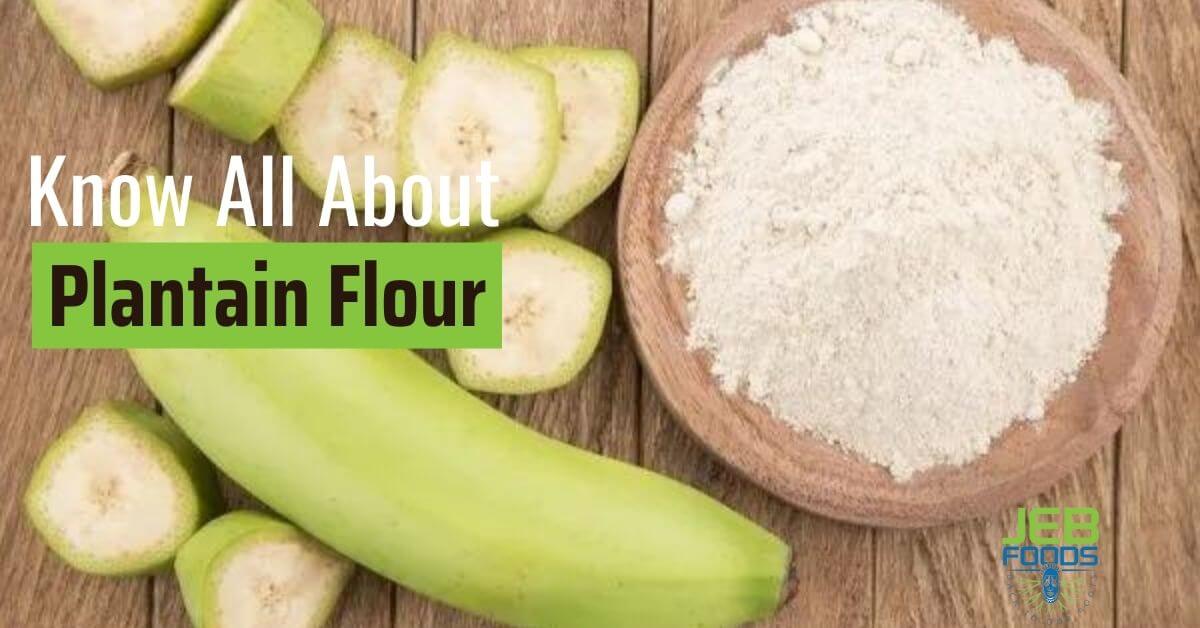To determine if yuca is good for a lean muscle diet, we must know all about yuca, where it came from, what it does and how it is used.
In the Americas and the Caribbean, the yuca root, also known as cassava, has become essential. Due to the nutrients contained in its tuberous stems, like potatoes and yams.
See all about cassava also known as yuca.
Yuca is a nutritious powerhouse that should be a fixture in all athletes’ diets and physically active individuals.
Yuca root may be crushed into flour and used in baked goods or added to soups and stews. This application makes yuca a good lean muscle diet.
It is also safe for the celiac disease since it does not contain gluten, like potatoes, but with a more delicate and gritty taste.
Let’s go into the details of how yuca can be a good fit for you for a lean muscle diet.
History of Yuca Roots
Table of Contents
ToggleThe yuca root, native to South America, was domesticated no more than 10,000 years ago at the beginning of human farming.
A Mayan agricultural village in El Salvador is where the first evidence of people eating yuca dates 1,400 years ago.
Many indigenous peoples of South America, Mesoamerica, and the Caribbean relied heavily on yuca root as a staple in their diets by Europeans who arrived in 1492.
Yuca root grew increasingly common in these locations during the European conquest, and cassava bread was even mass-produced in Cuba.
European merchants have brought a significant element across the globe to other parts of the world, including Africa and Asia.
Nigerian cassava output is by far the greatest globally, accounting for one-third of that of Brazil and nearly double that of Indonesia and Thailand.
Cassava production in other African nations, including the Democratic Republic of the Congo, Ghana, Madagascar, Mozambique, Tanzania, and Uganda, appears to be insignificant compared to Nigeria’s significant output.
Are you interested in knowing all about cassava flour?

The Health Benefits of Yuca
yuca is a good source of vitamins, minerals, and antioxidants, which may positively impact health. Choline, for example, is a vital ingredient for the body’s nervous and brain systems.
It’s also a vital aspect in maintaining the health of your cells and DNA. Your metabolism will suffer if you don’t get enough choline in your diet.
Yuca is also rich in potassium, which regulates your heartbeat, kidneys, and muscular contractions.
Other health advantages of yuca include:
It Contains A Significant Amount Of Potassium
Maintaining lean muscle mass, keeping your energy levels high, and good cellular function depends on potassium.
Because of the high sodium-to-potassium ratio found in processed meals, maintaining a balanced sodium-to-potassium ratio is critical for overall health.
Getting enough potassium into your diet is critical for those always on the go, such as athletes and fitness enthusiasts. It helps prevent fatigue, muscle cramps, constipation, and irritability.
Yuca has over 600 mg of potassium per cup, making it an excellent pre-or post-workout supplement. Portion sizes should be between 1/3 and 1/2 cup if you’re trying to lose weight.
Lower Cancer Risk
Beta-carotene, the pigment that gives yuca root its orange hue, is abundant in the root. One of the several antioxidants contained in yucas is beta-carotene.
In yucas, saponin, an antioxidant, has been demonstrated to combat free radicals, which may harm your cells and perhaps increase cancer risk.
The Health Of The Digestive System
You may use Yuca root to regulate your gastrointestinal tract. As a good source of resistant starch, it has comparable effects as soluble dietary fiber. Your intestines benefit from Yuca root starch, which feeds the “healthy” bacteria that thrive there.
For many individuals, this might help them avoid weight gain by making them feel fuller, which can help them limit their food consumption.
Assisting In The Control Of Blood Sugar
Scientists have also researched the effects of yuca root’s resistant starch on blood glucose levels. Reduced insulin levels have been linked to the use of resistant starch.
When it comes to managing insulin levels, persons checking their blood sugar levels may benefit from consuming modest quantities of yuca root.
Boosts The Body’s Defenses
As a source of vitamin C and antioxidants, yuca positively impacts general health and immunity.
White blood cells, the body’s main line of defense against infection and viruses, are boosted by vitamin C.
Thanks to the antioxidants included in yuca, our cells are protected from mutations and damage by free radicals.
Relieves Arthritis Symptoms
Native Americans have long relied on yuca to treat arthritic symptoms, and yuca supplements are now often used for the same reason.
The anti-inflammatory qualities of yuca may help alleviate pain and discomfort.
According to several studies, taking yuca may help prevent arthritis in those at high risk of developing the disease.
As well as potent antioxidants, yuca also contains saponins. These medications may help alleviate the symptoms of arthritis.
Contains Anti-Aging Resveratrol
Anti-inflammatory and antioxidant resveratrol is found in the root of yuca. It protects your body from harm caused by oxidative stress, such as the exhaust from your automobile as you drive.
Additionally, resveratrol acts as an anti-estrogen and anti-estrogenic agent, inhibiting the conversion of testosterone to estrogen. If you’re obese, have a lot of belly fat, or have excessive blood sugar levels, this is essential to preserving your testosterone supply.
Promotes Skin Health
Many natural skincare procedures use yuca root as a component. The peel may be used to exfoliate and remove dead skin cells, and the roots can be combined with honey or olive oil and used as a face mask to brighten the complexion.
Even including yuca root into your favorite meals might help you maintain a healthy glow. It’s high in vitamin C, a substance involved in collagen formation, and is thought to have anti-aging benefits.
Vitamin C has also been demonstrated to decrease melanin synthesis, which helps avoid dark spots and hyperpigmentation and protects against UV damage by scavenging dangerous free radicals.
Yams vs. Cassava vs. Yuca Root
What’s the difference between these typical root vegetables? However, yuca root (or yuca) and cassava root are the same plants.
However, yams are a distinct kind of edible tuber and belong to a different plant genus.
Instead of being exclusive to South America, yams are found throughout Asia, Africa, and North and South America.
Depending on how they’re grown, they may be found in various colors, from dark brown to pink. They may be cooked, mashed, or baked instead of potatoes in many dishes, like yuca.
Yams are lower in calories and carbs than yuca, but they also include almost twice as much fiber. Vitamin C content is somewhat lower, while other minerals like vitamin B6 and potassium are more significant.
What can i substitute for cassava flour
What to Know About yuca and Where to Find It
As with other tubers, such as sweet potatoes and yams, yuca can generally be found in the vegetable area of your local grocery store.
Expanding your search to include Latin or Asian specialized marketplaces may be necessary for certain circumstances.
It may also be purchased in the freezer area pre-peeled and sliced. Consider searching for it by its various names, such as cassava or yuca, as well.
How can you prepare yuca so that you may get the many health advantages it has to offer? From soups and stews to custards and desserts, there are several yuca recipes to choose from.
Unlike conventional potatoes, it may be utilized in a wide variety of ways. You may use the same technique to produce yuca fries, chips, or cakes as you would with potatoes by boiling and mashing them.
The baking department of most supermarkets will also include cassava flour (manufactured from yuca root powder) in addition to raw yuca.
Baking staples including cookies, cakes, brownies, and crepes may benefit from this popular gluten-free flour substitute.
A flour manufactured from the starch of the yuca root, tapioca flour (or tapioca starch), has a somewhat different texture than cassava flour, which uses the whole root.
When it comes to thickening liquids and producing homemade puddings, tapioca flour is an excellent choice. It’s also common in biscuits, jellies, and broths since it’s created from yuca and other roots.
Yuca Roots Precautionary Measures
Although yuca root provides many nutrients and health advantages, especially since it Is Yuca Good for Lean Muscle Diet. But it is heavy in calories and carbs, and it’s advisable in moderation for a balanced diet.
If you’re looking to swap out potatoes or grains for yuca root starch in your meals.
Make sure also to include enough non-starchy veggies and protein-rich foods to ensure that your meal is well-balanced.
When taking yuca root, make sure to prepare it first correctly. Yuca roots contain an ingredient that may lead to toxic byproducts like cyanide when they aren’t handled properly.
Vomiting, stomach discomfort, dizziness, and migraines may occur if yuca root is cooked incorrectly.
Make sure to peel, chop, and boil the yuca entirely before eating it, and use sweet kinds if feasible.
Soak it for 48 to 60 hours before cooking reduces the toxicity risk, according to several studies.
Vitamin and mineral absorption may be hindered by antinutrients, which are chemicals found in the yuca root. In general, persons who use yuca root in moderation need not be concerned.
But those who consume it as a dietary mainstay should be aware that it may raise the risk of nutritional deficiency.
Is Yuca A Healthy Food To Consume
A nutritious root vegetable low in fat and gluten, yuca has a brown outer shell and is white on the interior.
It is a root vegetable that can be eaten cooked. Yuca is strong in Vitamins C, B, and A and calcium, phosphorus, potassium, and iron.
It has more fiber and potassium than potatoes, making it a healthier alternative to potatoes.
Are Potatoes less Nutritious to Yuca
Yuca root has more calories, protein, and carbohydrates per serving than potatoes. This is the reason it is recommended for athletes and other physically active people.
Along with rice and maize, yuca is one of the principal sources of carbohydrates in the tropics, ranking alongside rice and corn.
Here are the health and nutritional benefits of cassava flour
Is It Possible To Boil Yuca With The Skin On
You may use your thumbs below the peel to go along its root length, removing skin in a jacket-like fashion.
Cook the yuca root chunks for 15 to 25 minutes, or until the root is highly mushy when pricked with a fork in a pot of boiling water.
Is There A Distinction Between Yuca And Yucca
Even though yuca and yucca are both plants with similar names, they are not synonymous.
Yuca, pronounced YOO-ka, is the Cassava plant’s root. Its name might be confusing due to its resemblance to the yucca, a native desert plant of the southern United States (pronounced YUHK-a).
The two are unrelated, despite the fact that the spelling is frequently used interchangeably.
In the case of the cassava plant, yuca is a starchy, edible tuber that grows on the plant’s roots, whereas yucca is a genus of plants that belongs to the Asparagaceae family.
What Is The Best Way To Prepare Yuca For Consumption
Potatoes and yuca should be treated in the same manner.
Place the vegetables in a saucepan and fill with cold water, season with salt.
Let it boil, after which you apply minimal heat and allow it to simmer for around 20 minutes, or when vegetables are tender.
After that, drain the water, and you’re ready to eat.
Is It Possible To Consume Raw Yuca
Yuca may be prepared in a variety of ways, much like potatoes. Although Yuca Good for Lean Muscle Diet but it should not be consumed raw.
It can be fried, mashed, or boiled. Yuca, on the other hand, must first be cooked before it can be consumed. It should not be consumed uncooked.
The bitter species of yuca, which originates in Africa, has a greater cyanide concentration and must be soaked and cooked for many hours before consumption.
Is Cassava A Complex Carbohydrate Or A Simple Carbohydrate?
Please take into consideration that it is the spaghetti of the veggie world. It is possible to consider the bulk of the carbohydrates in cassava to be “complex,” similar to those found in whole grains, legumes, and other starchy vegetables.
Complex carbohydrates are made up of long chains of sugar molecules, which take longer for the body to break down and utilize than simple carbs.
See in full details, if cassava flour is a complex carbohydrate
Final Thoughts
Whole food carbohydrate sources like yuca root are excellent sources of essential nutrients which makes Yuca Good for Lean Muscle Diet
Your weight, exercise level, health objectives, and more all play a role in determining how many carbohydrates you should include in your diet.
Yuca should be at the top of your “go-to” carbohydrate list for increasing meal diversity and boosting your micronutrient consumption for health and performance, but it’s not the only option out there.
Purchase your Jeb Foods Gluten-free, Grain-free, Nut-free Cassava Flour here




